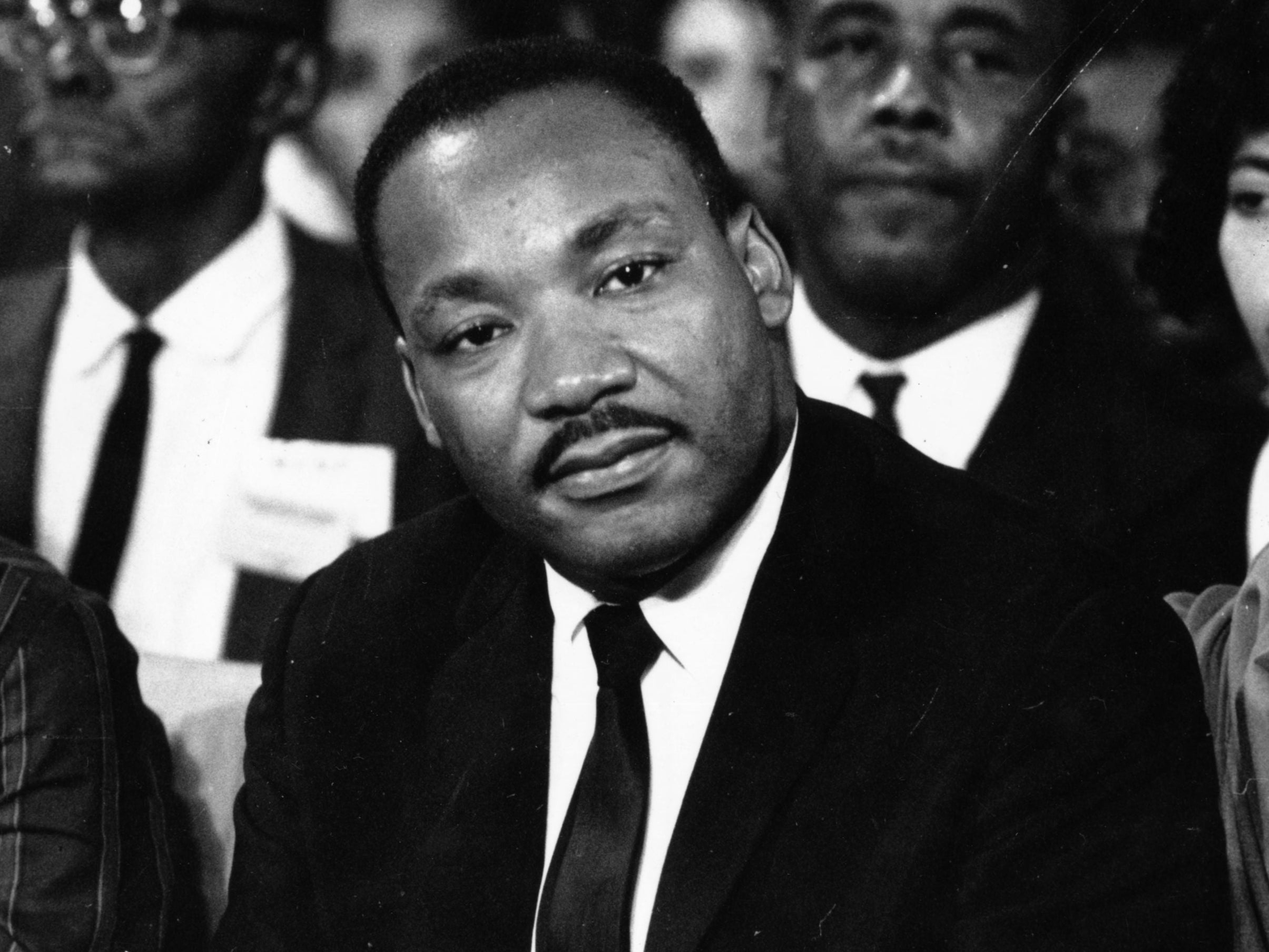Alabama considering wiping arrest records of Martin Luther King Jr and Rosa Parks
Civil rights attorney says he may file a suit to expunge the records of the racial justice icons after almost seven decades
Your support helps us to tell the story
This election is still a dead heat, according to most polls. In a fight with such wafer-thin margins, we need reporters on the ground talking to the people Trump and Harris are courting. Your support allows us to keep sending journalists to the story.
The Independent is trusted by 27 million Americans from across the entire political spectrum every month. Unlike many other quality news outlets, we choose not to lock you out of our reporting and analysis with paywalls. But quality journalism must still be paid for.
Help us keep bring these critical stories to light. Your support makes all the difference.
Alabama officials are considering wiping the arrest records of civil rights icons Martin Luther King Jr and Rosa Parks almost seven decades after they were charged for protesting against racial segregation.
Montgomery County District Attorney Daryl Bailey, who is the chief prosecutor in the state’s capital, told the Associated Press he would generally support expunging their arrest records but would respond in court if or when such a request is filed.
The discussion arose after Claudette Colvin asked a court on Tuesday to have her own record wiped for an arrest back in March 1955 when she was just 15 years old.
Ms Colvin was arrested and convicted when she refused to comply with racial segregation laws and move to the back of a bus in Montgomery.
The 82-year-old said her “mindset was on freedom” when she decided to file the request nearly 70 years on. The request is yet to be decided.
Ms Colvin’s case has now opened up the possibility of similar requests being made for other civil rights pioneers.
Civil rights attorney Fred Gray, who represented both Mr King Jr and Ms Parks, told the Associated Press he may file a lawsuit to have both of their records expunged on their behalf.
Ms Parks was convicted of violating racial segregation laws when she refused to give up her seat on a bus to a white man in 1955. She was ordered to pay a $10 fine but refused.
In January 1956, Mr King Jr was arrested in Montgomery while boycotting the buses in protest over Ms Parks’ treatment.

Mr King Jr and Ms Parks were both arrested again along with around 100 others on charged of organising the Montgomery Bus Boycott.
As the boycott organiser, Mr King Jr was convicted of violating a law banning boycotts and paid a $500 fine.
Mr Gray said that previous efforts to reverse his conviction had failed.
Ms Colvin said she was doubtful that, after such a long time, justice will ever be achieved for all those arrested across the South during the fight for racial justice and civil rights.
“That would take a hundred years, maybe 200 years to go through the court system,” she said.
“You could never finish it.”
And not everyone may want their records wiped. In 1963, the city of Birmingham offered mass pardons to people arrested in civil rights protests but many people turned down the offer, instead seeing the arrests as a badge of honour.

Subscribe to Independent Premium to bookmark this article
Want to bookmark your favourite articles and stories to read or reference later? Start your Independent Premium subscription today.





Join our commenting forum
Join thought-provoking conversations, follow other Independent readers and see their replies
Comments